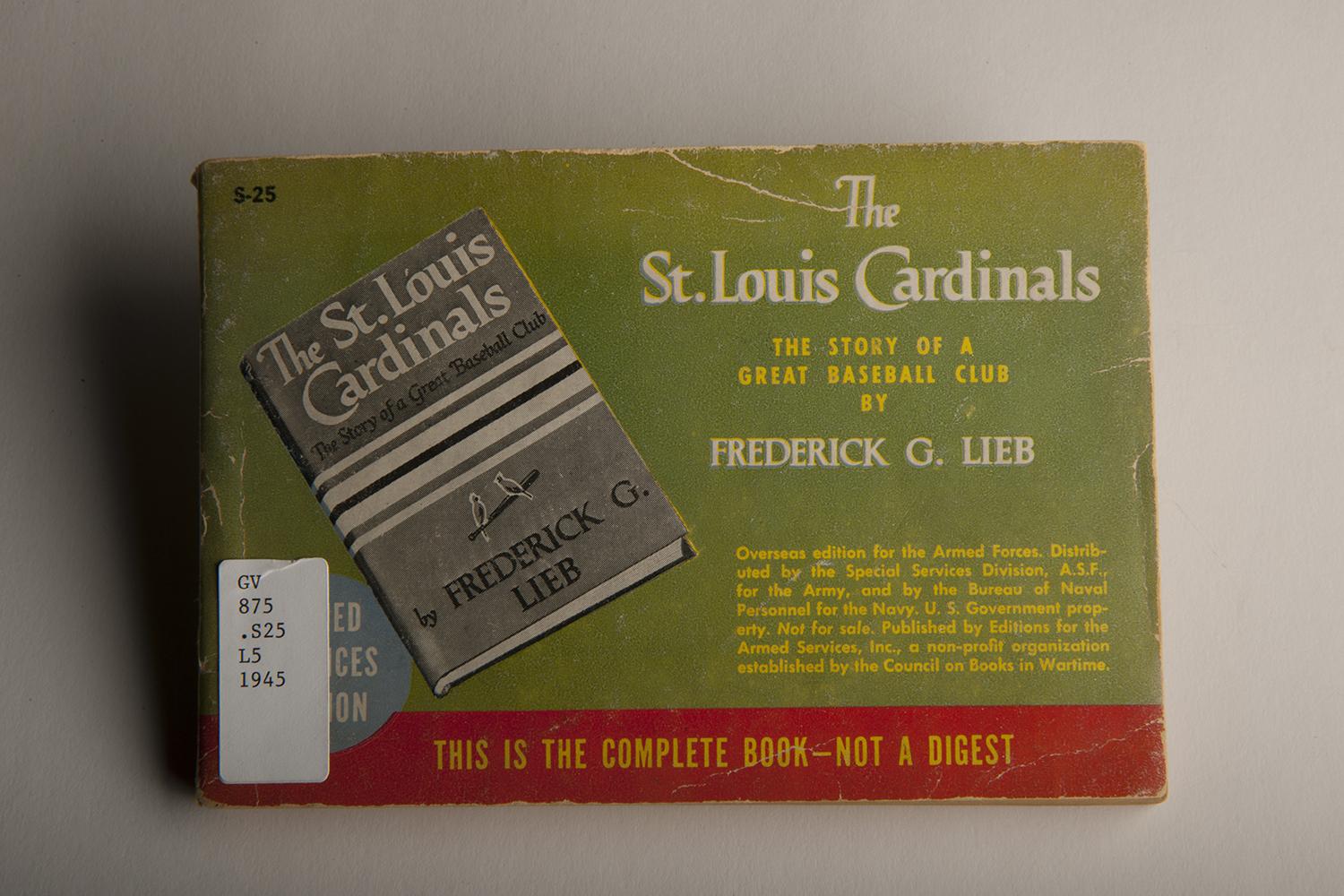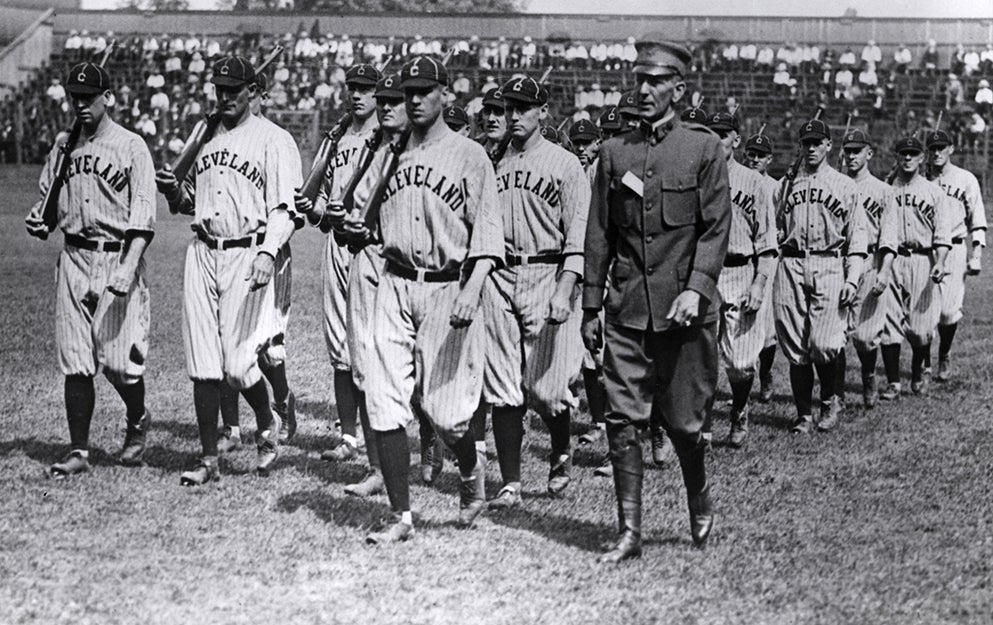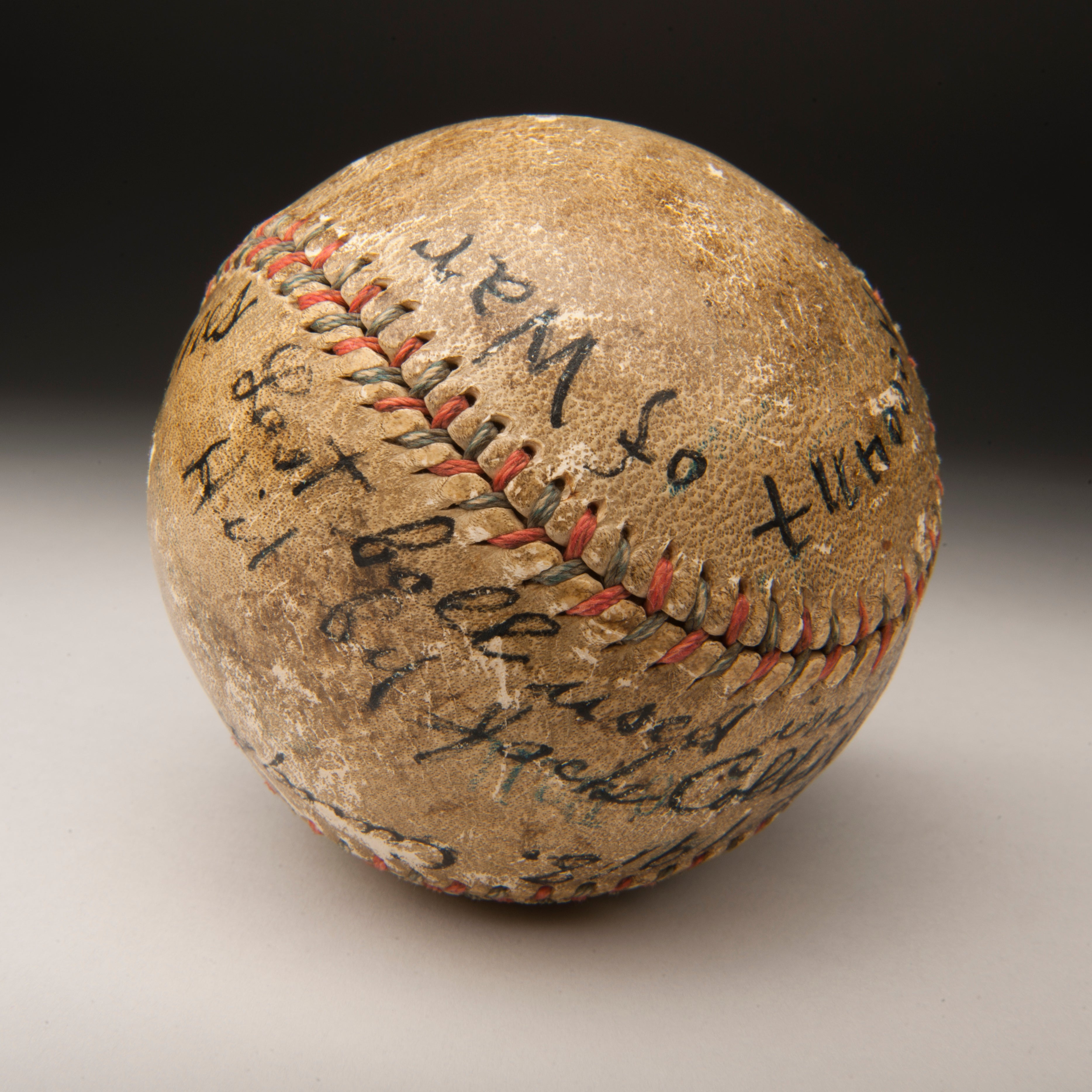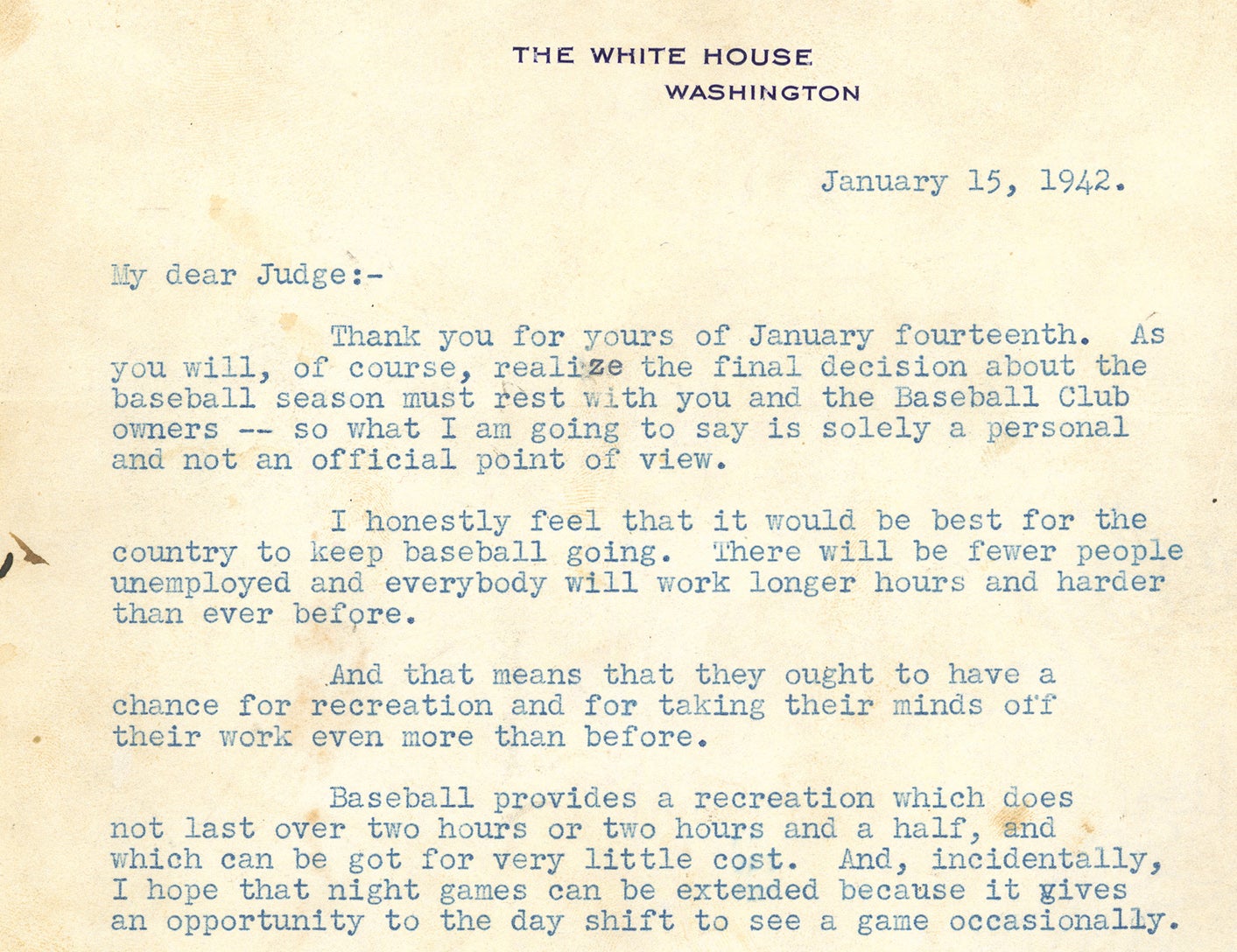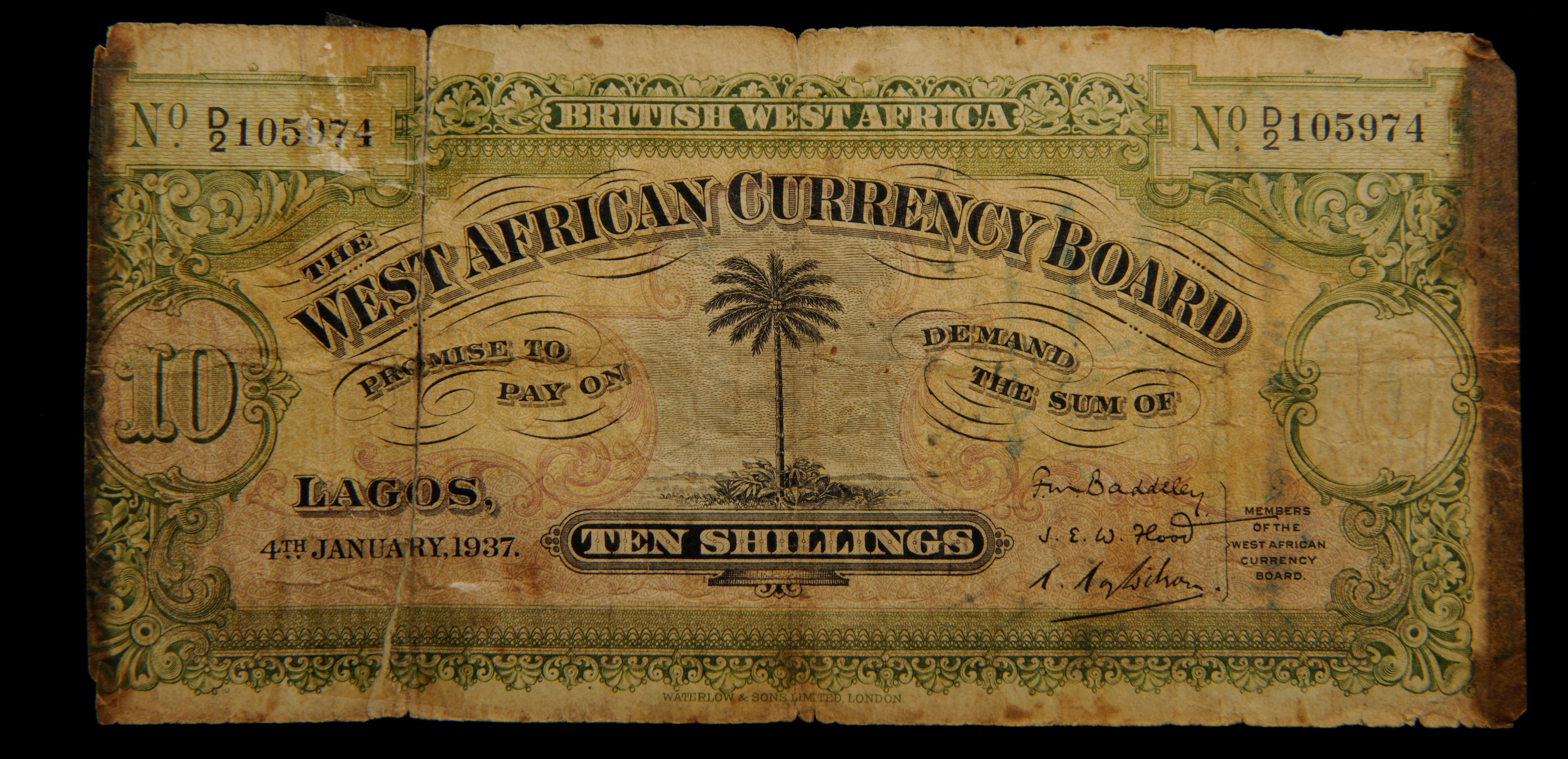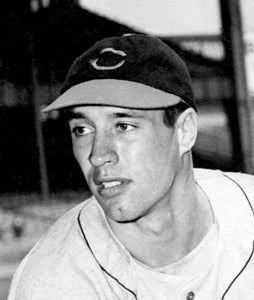- Home
- Our Stories
- Wartime books preserved in Hall of Fame Library
Wartime books preserved in Hall of Fame Library
As it turns out, the Soviets weren’t the only Reds on America’s side during World War II.
Sure, you could send a salami to your boy in the Army, as one New York City delicatessen offered, but what if that simply didn’t cut the mustard?
In 1945, the Cincinnati Reds recognized that many of their fans were still fighting in far-flung corners of the world, unable to attend or listen to games. Although the Sporting News sent issues wherever desired, the Reds thought a hometown touch was needed.
Published since 1935, “News of the Reds” was a newsletter issued several times per year. It filled Reds fans in on the latest team news, feature stories on players, information from the club’s minor league affiliates and upcoming games and events at Crosley Field. For those serving overseas, the team published a 15-page Service Edition, designated as Volume X, No. 1. Roughly a little bigger than two baseball cards placed side-by-side, the newsletter is designed to fit in the pocket of a military uniform.
A year into the Council on Books in Wartime's existence came the effort known as Editions for the Armed Services, Inc., which were paperback books from a variety of genres, both fiction and non-fiction. One example of these books is in the Hall of Fame's collection -- The St. Louis Cardinals: The Story of a Great Baseball Club by Frederick Lieb. (Milo Stewart Jr. / National Baseball Hall of Fame)
Although both the 1944 and 1945 editions of “News of the Reds” were considered Volume X, each with its own distinct issue numbering, this Service Edition – preserved in the Library of the National Baseball Hall of Fame and Museum – greets the GIs at the beginning of the 1945 season. The inside front cover lists members of the Reds serving in the Armed Forces. General Manager Warren C. Giles then provides a message to the servicemen:
This booklet is addressed to the thousands of Redleg fans who have spent the past few years in the nation’s armed forces and has been written to inform them of what has happened at Crosley Field since our country went to war.
For this reason we are going back to 1940, the year that Selective Service went into effect, to tell you what has happened to the men you cheered on to a world championship that season. This booklet will also tell you what has happened to the Cincinnati Reds since that time, who the new players are and where they are from.
When this war is at long last over, many of you will want to return to your seat in the grandstand – scorecard, hot dog and all, to watch major league baseball of the future. This booklet may in a small way help you connect the baseball that you knew with the game you will see in the years to come.
Over the ensuing pages, the newsletter provides brief capsules on each of those 1940 champion Reds and includes a 1945 team roster.
It was not uncommon for miniature versions of full-size documents to be sent to the troops throughout the world. For example, the Toledo Blade newspaper offered readers a weekly “Home News” section that could be clipped out and sent to those overseas. Other newspapers provided similar editions.
Catching up on news from the home front would be a welcome sight for the troops, but for many in the publishing and literary fields, they felt the troops would be best served through reading a variety of books. Thus was created the Council on Books in Wartime in 1942. Some of the major publishers involved were W.W. Norton & Company, Random House, and Doubleday & Co.
A year into the Council’s existence came the effort known as Editions for the Armed Services, Inc., which would be the most popular of all the Council’s work. In existence from 1943 through 1946, the Armed Services Editions were paperback books from a variety of genres, both fiction and non-fiction. Intended to provide a source of relaxation and entertainment, as well as education, the books were small enough to fit in the serviceman’s shirt or pants pocket.
John Cole, in his 1984 work, Books in Action: The Armed Services Editions, quoted Arnold Gates, who fought in the Battle of Saipan. Gates said Carl Sandburg’s Storm Over the Land helped him during breaks in the action. “I would read what [Sandburg] wrote about another war and found a great deal of comfort and reassurance,” Gates recalled.
In just four years, over 123 million copies were printed and distributed worldwide for free to members of the armed forces. This encompassed 1,322 books, two of which are held in the Baseball Hall of Fame Library: Farewell to Sport by Paul Gallico and The St. Louis Cardinals: The Story of a Great Baseball Club by Frederick Lieb. Condensed in size (measuring from 5 1/2” to 6 1/2” long and from 3 7/8” to 4 1/2” high), though not abridged and featuring a thumbnail of the original cover on its cover, these editions were two of many sports books printed.
Many other authors and poets were represented in the series, including Ernest Hemingway, Herman Melville, Edgar Allan Poe and John Steinbeck. The books were designed to be expendable, allowing troops to rip them apart to permit as many as possible to read sections, or having troops hand them from one to other until they practically disintegrated.
Gallico and Lieb themselves each had two other titles printed as Armed Services Editions. BBWAA Career Excellence Award winners Warren Brown, John Carmichael, Damon Runyon, J. Roy Stockton, Frank Graham and Ring Lardner also had Armed Services Editions of their works, as did Hall of Famer Bob Feller. Violinist Albert Spalding, namesake of his Hall of Famer uncle, also had an ASE work published.
The books were the topic of a page one story in the April 30, 1944, New York Times Book Review. Times writer Frank S. Adams relayed the letter of one GI in New Guinea who said the books “are as popular as pin-up girls.” Another American soldier, based in Italy, told Adams that more good books would help the servicemen stay out of trouble.
Among the most popular books distributed in Armed Services Editions were A Tree Grows in Brooklyn and The Great Gatsby. Such interest in these editions prompted publishers to increase the number of offerings in paperback format. Many who had read the paperbacks during the war would end up purchasing hardcover editions upon their return home. Additionally, it encouraged many GIs, who may not have received much more than a partial high school education, to read and possibly later attend a college or university.
Cole relayed that even authors received praise from the GIs. He explained that Helen MacInnes, who wrote While Still We Live, was the recipient of many letters, including one which said the sender “had read little until [the ASE edition] got him enjoying literature.”
With the war having ended, the Council on Books in Wartime disbanded in early 1946, but the impact it had on American servicemen and the publishing industry during the conflict cannot be understated.
“I can’t say it’s next to my heart,” read a letter to the Times from a serviceman in the southwest Pacific. “But it is treasured.”

